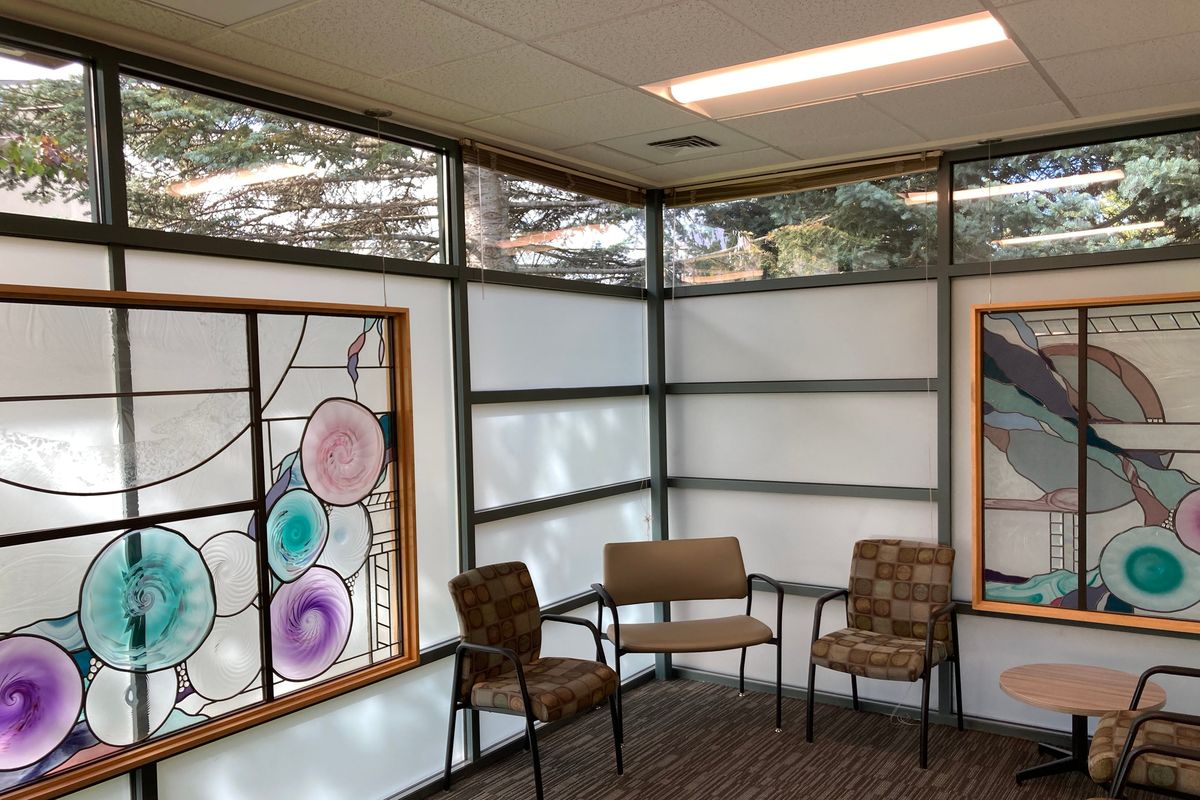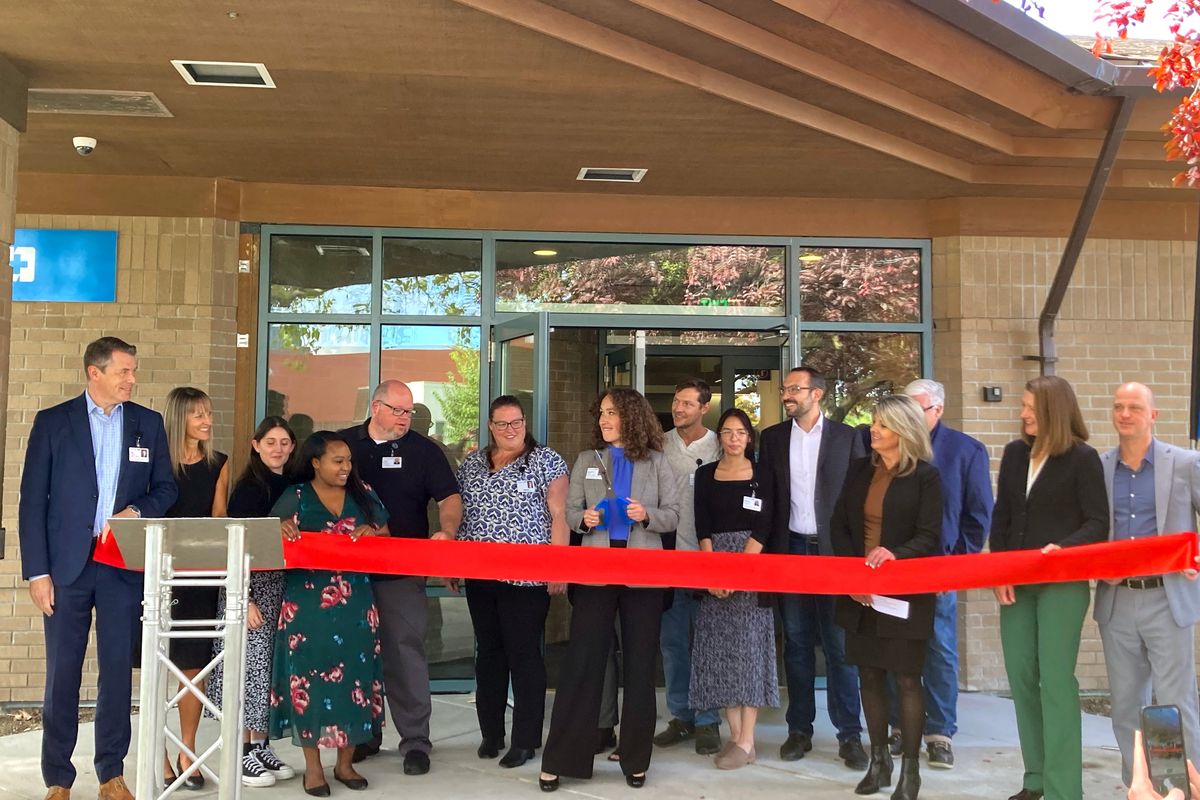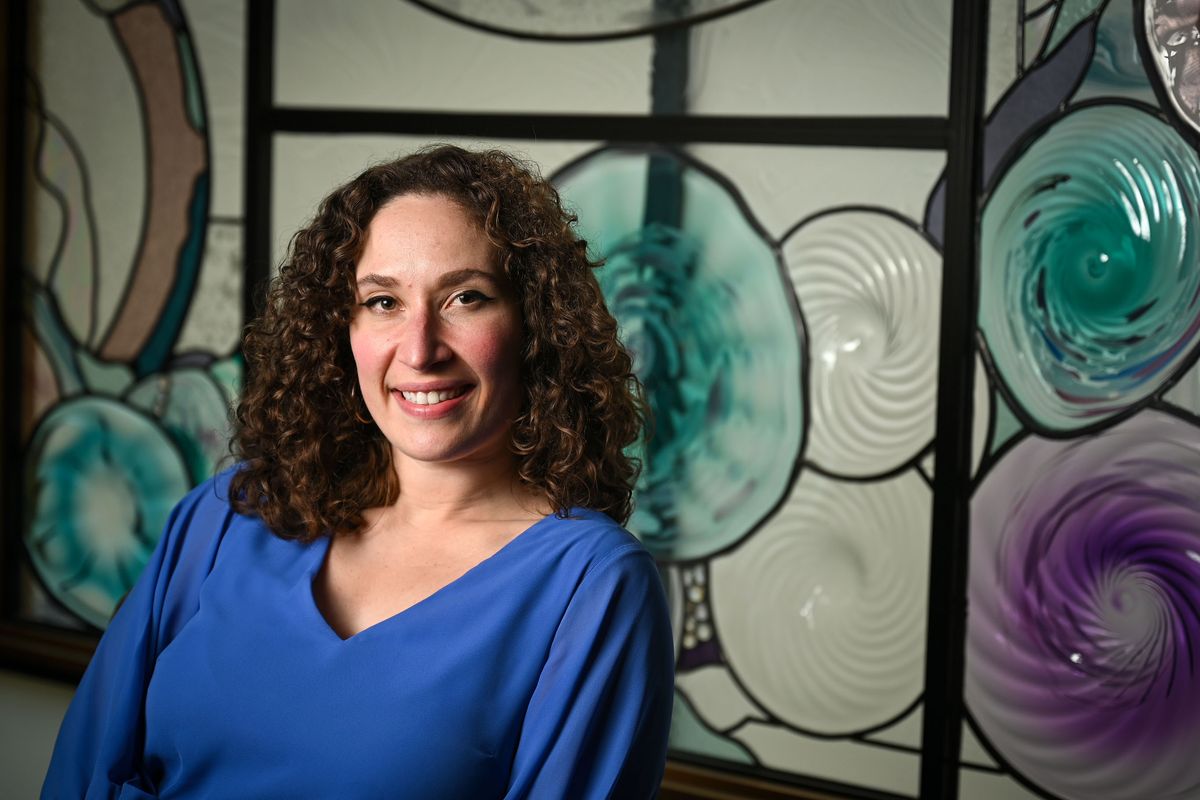Behavioral health clinic opens in Hillyard with goal of ‘equitable access’ for MultiCare patients
Samantha Clark, a Multicare behavioral Health Network assistant vice president, will receive a YWCA Woman of Achievement Award. (DAN PELLE/THE SPOKESMAN-REVIEW)
A vision to widen access to youth and family mental health services became reality Tuesday as MultiCare unveiled its new Hillyard facility.
The $2.58 million MultiCare behavioral health clinic opened with a waiting room, 21 treatment rooms, three large group therapy rooms and a community classroom. It’s in a remodeled 8,200 square feet of the former Hillyard Library and uses some original features such as natural lighting and stained-glass artwork.
“Look in there – it’s not scary, it’s not sterile,” said Samantha Clark, a MultiCare Behavioral Health Network assistant vice president.
But what drew the most attention is the start of outpatient therapy services.
Located at 4005 N. Cook St., the clinic is opening with five behavioral health clinicians on site. A sixth provider is scheduled to arrive within the next month.
The need for more help has been rising in the past several years amid efforts to offer better access and destigmatize behavioral health care, especially for youths and young adults. The goal is to have at least 20 behavioral clinicians there within the year, Clark said.
“We will have a walk-in component, so people can either be pre-scheduled or walk in. The goal is to stagger the schedule to accommodate a warm hand-off, so say you walk in and you’ve never accessed behavioral health services before, you are able to spend five minutes with a clinician about what to expect. That way, it’s less scary.”
The new facility is considered an embedded clinic, she said, as it’s built next door to the Northeast Community Center and across the street from Shaw Middle School and the new Hillyard Library. Youths can walk there from school, as can residents going to the community center for services such as energy assistance or child care.
On Cook Street, an updated corridor and its entry sign reads: “Hillyard Community Campus.”
Dave Richardson, Northeast Community Center executive director, said it took 38 months to go from figuring out what to do with the former library to the clinic’s opening. He credited MultiCare and Clark’s commitment to building “equitable access” and growing mental health capacity in Spokane.
“You inspired us to imagine and create the collaborative service model focusing on youth and their whole family needs,” he said. “This clinic is a pretty good outcome of that.”
More than 75 people attended a ribbon-cutting ceremony Tuesday and heard from Clark, MultiCare Inland Northwest chief executive Alex Jackson, Mayor Nadine Woodward, City Councilman Michael Cathcart and County Commissioner Amber Waldref.
The project received funding from private donors, the City of Spokane, Spokane County and others. The 2021 MultiCare “Heart Strings for Hope” benefit concert also brought significant donations. Other funds came from the state Department of Commerce and the Ballmer Group, which donated $500,000.
The Ballmer Group is a philanthropic organization of Connie and Steve Ballmer, who served as Microsoft chief executive officer from 2000 to 2014. Ballmer Group’s support for the clinic fell under a mission to help communities gain more behavioral health services, said Kacey Guin, a portfolio manager.
Clark said the staff will start off Wednesday by offering virtual services, but soon shift into in-person care.
“We’re waiting on some licensing updates, so it’s all virtual to open, but the goal is shortly after to have virtual and in-person,” she said.
The services will include individual and group outpatient therapy for youths and adults from surrounding neighborhoods and the wider region. The clinic’s virtual services can help rural clients. Plans call for eventually adding substance use counseling.
The work started several years ago with a community health assessment in the Hillyard neighborhood, when the community identified mental health as a top need. Others involved in creating a vision for the clinic were the Northeast Community Center and the Zone (Northeast neighborhood partnership) .
As staff is hired, eventually they’ll include psychiatric advanced registered nurse practitioners who can provide medication. Clark said the community campus model is likely to be studied by the state, academic centers, philanthropy groups and other health care systems.
“There is a lot of interest in this model of having a community campus like this so close to schools. We’ve got Shaw Middle School, Regal Elementary and the On Track Academy and Skills Center all right here.
“Now we have embedded behavioral health – so there is a lot of interest in assessing the impact on the community, especially kids’ mental health, with integrated behavioral health so close.”


